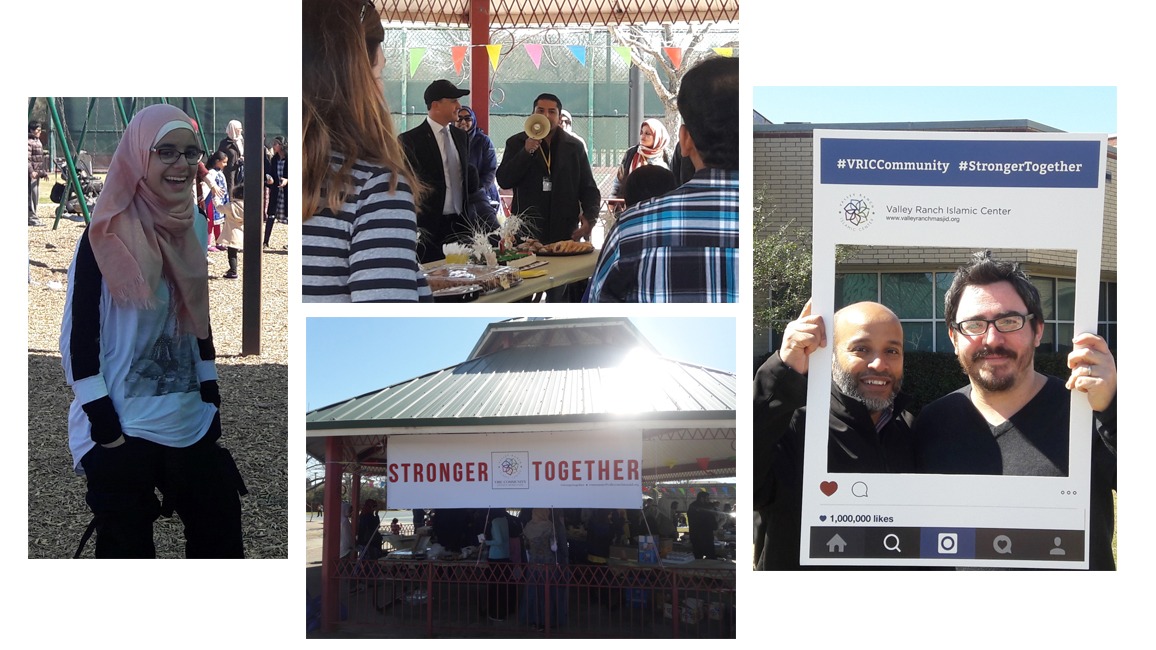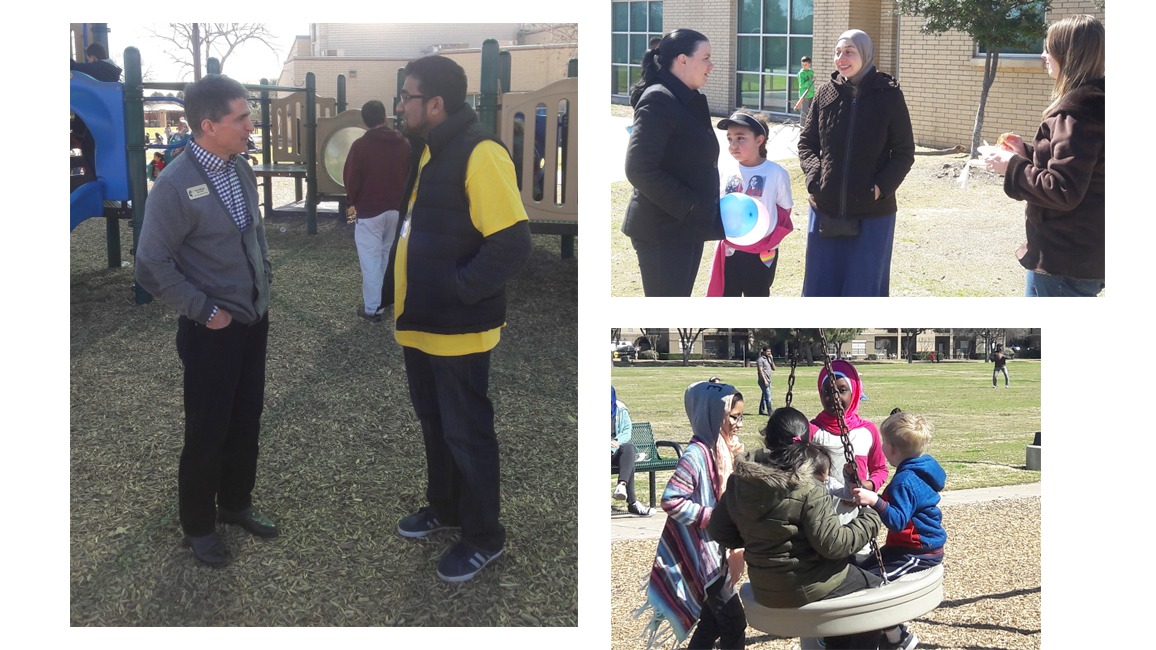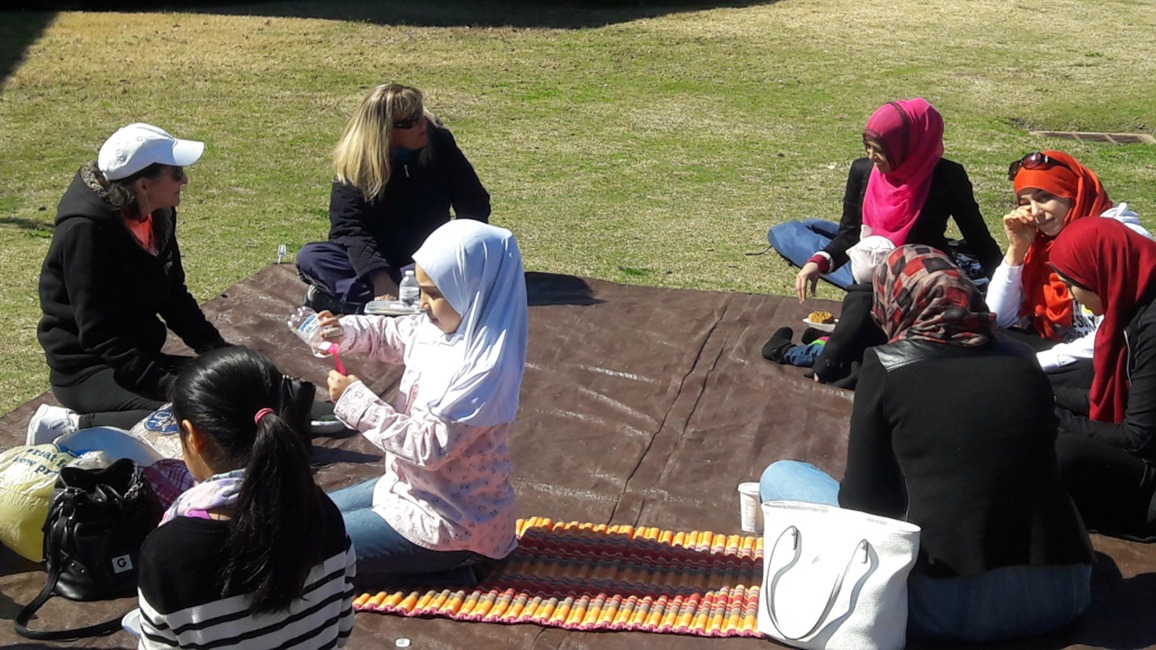Islamic Neighbors Get Hospitality Right — and Christians Can Learn
How Valley Ranch Islamic Center reaches past the uneasiness of ‘the other’
Shaun Jex, a member of First UMC Coppell, blogs about faith in Walking the Jericho Road: Field Notes From a Dangerous Faith. Here is his blog post about Christians being on the receiving end of audacious hospitality.
On February 25, 2017, my family attended a community picnic sponsored by Valley Ranch Islamic Center. Like the VRIC barbeque we attended in November, this was an amazing interfaith event. Multiple Christian congregations attended, while VRIC supplied all of the food and drinks. Several hundred people attended, mingling together, sharing stories, laughing and bonding over good food and beautiful weather.
Over the last few years I’ve learned quite a bit from my Islamic friends and neighbors, things that I think would benefit the Christian Church.
VRIC is consistently active in the surrounding community. They host breakfasts, picnics and barbeques on a regular basis, holding the events in public places and inviting any and all to attend.
The events I’ve attended have focused exclusively on fellowship, devoid of overbearing efforts to convert. That is not to say that they shy away from speaking about their faith, but they allow their hospitality and kindness to bear witness first, inviting people to come and see who they are and what their faith represents.

Though by no means true of all Christian congregations, I’ve noticed a tendency for the church to become somewhat insular, existing like a community apart.
The community events the church holds tend to be seasonal, with events around Halloween, Christmas and Easter. Rather than venturing out into the community, these events tend to put the initiative on the community. We ask others to come to the church instead of the church going out into the community.
There is also an unspoken (sometimes spoken) agenda behind these events, operating under the premise that we’ll draw them in and then convince them to stay. One of the most significant things I’ve learned from VRIC is that our service should be given without strings, or even expectation of reciprocity. The service functions as its own reward.
Through committees and classes, I’ve heard a continuous refrain that suggests that visitors and new members at churches often struggle with the feeling that they are unwelcome. They come to the building looking for a new congregation or church home and then find themselves thrust into the middle of a well established social circle that can be difficult to penetrate. Cliques develop within congregations, with certain members failing to interact with and sometimes even avoiding those outside of their group.
I’ve heard complaints from visitors who were never greeted or who got lost in the building because no one took the time to help them. Perhaps just as damaging, sometimes they are warmly greeted on their first or second visit and then forgotten about once they become regular members, as though what mattered most was adding their name to the record books.

At every VRIC event, I’ve found a consistent spirit of hospitality and that the members are just as welcoming as the leadership. During the picnic, our family was approached by several dozen VRIC members, each of whom welcomed us, shook our hands, and then offered to get us food, drink or anything else we might need. Every time someone stood up from their picnic blanket they asked their neighbors if there was anything they wanted. We were regularly thanked simply for our willingness to attend, as though we were the ones extending the hand of welcome and not the other way around.
As Christians, this welcoming attitude and desire to serve should be second nature to us as well. As Jesus says in the Gospel of John, “Your love for one another will prove to the world that you are my disciples.” (John 13:35 ESV). Often, when we discuss declining numbers in church attendance we discuss superficialities like the style of hymns we sing, the mixed media we do or do not use to present our message, the time services are held or the dress code. Of course, details like these can be important, but I think that the first and most important step for the church to take is to cultivate a culture of welcome, hospitality and love.
Perhaps most importantly, I’ve learned how important it is to move past any sense of “other.” Our church recently held a month long class studying Methodist Theologian and Bishop Wil Willimon’s book Fear of the Other. The book explores our human tendency to fear those we view as “other” and how we can move beyond this fear, to fulfill the Biblical command to welcome and care for those viewed as the “other” and how they can, in fact, aid in our salvation.
These are important steps to take, but if we stop there we haven’t gone far enough. We need to begin to see each other as neighbors, as brothers and sisters, to move beyond this concept of “other” and to embrace each human being for their inherent, God given worth.
I am indebted to the members and leadership of VRIC for welcoming me, for giving me the opportunity to gather with and to learn from them, but most of all to join with them in building a community of love and acceptance, a love that does not ignore our differences, but embraces them, knowing that we are stronger together.
Published: Wednesday, March 8, 2017

